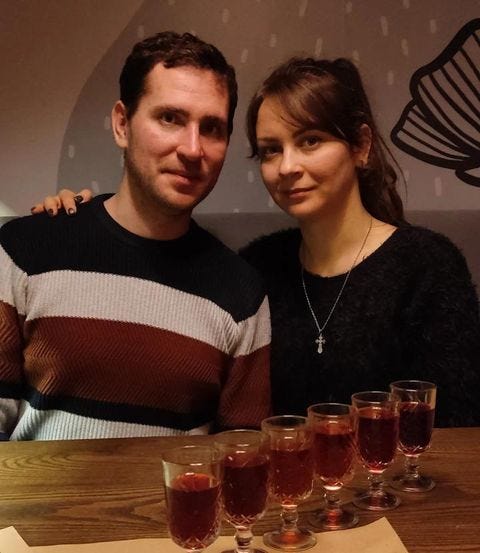Citizen Journalism: How the war changed my life—A reflection of Ukraine’s conflict with Russia
Eugene is a Ukrainian man currently living in Dnipro with his wife. We present his account of the war in his own words. This text has been edited for clarity and flow by Clary Estes.
Oblast, a word you will see throughout this text, refers to a type of administrative division found in Belarus, Bulgaria, Kazakhstan, Kyrgyzstan, Russia, Turkestan, and Ukraine, as well as the former Soviet Union and the Kingdom of Yugoslavia.
Many people believe that the war in Ukraine began on February 24th, 2022. But for most Ukrainians, the war began much earlier, in 2014, when Russian troops occupied Crimea, held an illegal rally there, and subsequently recognized it as a Russian territory. Since then, my friends have been forced to leave Sevastopol and move to Kyiv. Other acquaintances were forced to leave their home in Donetsk where collaborators, with the support of the Russian military, had seized power and established a new order.
This is why we call February 24th, 2022, the active military phase of our confrontation with the Russian invaders, and not the beginning of the war. Yet, it is true that cardinal changes took place this year. For example, we are now experiencing the first missile strike on my native city of Dnipro.
On February 24th, I heard the news of massive missile attacks on many cities in my homeland while we were vacationing in the resort town of Truskavets (Lviv Oblast, in Western Ukraine) since February 5th. I heard that the missiles were targeting more than just military targets. It is difficult to convey the feelings that gripped me at that moment. I felt fear and anxiety for myself, for my relatives and my friends, and especially for my colleagues in Kharkiv, who were forced to leave their homes in a hurry or hide in basements.
Arriving at the Lviv railway station, we saw thousands of refugees from all over Ukraine who were trying to leave the country. We decided to postpone our trip back to Dnipro for a week, so we could better understand the threat that the Russian invaders posed to the railway lines between Lviv and Dnipro. At the time, the railroad did not seem like a safe means of transport, so we decided to stay in Lviv a while longer. Fortunately, I have a cousin in Lviv, who gladly provided us shelter.
Any idea of going abroad we had was dropped. Men between the ages of 18 and 60 cannot leave Ukraine while martial law is in effect, so I could not leave. I also did not feel comfortable leaving my elderly parents behind.
Every day we stayed in Lviv killed us morally. We would watch the situation at the front, which spoke to the courage of our military, who put up fierce resistance against the second most powerful army in the world. On Saturday, March 5th, after 6 hours of waiting and a train delay, we finally headed east back to our home in Dnipro. We arrived the next day.
Two days after our arrival, we heard the first rocket explosions. At 5 am, my wife, Nastia, woke me, saying that we were being bombed. I both heard and felt the second explosion, which happened 4 km from my house. The ground, windows, and walls shook from the explosion.
Some Ukrianians have it worse than we do, so we do not complain. Rather, we do our best to help refugees in every possible way; we donate dishes, clothes, and shoes to the volunteer center, and we help with financial donations to refugees, as well as to our military.
2 weeks ago, I offered my apartment, located in my home city of Kamianske (in the Dnipropetrovsk Oblast), to my colleague, his wife, and his two small children, who fled the war in the east from the city of Sloviansk, located in the Donetsk Oblast.
Now the air raid sirens have become commonplace. When we hear them, we hide in an area of our home that is behind two walls. I am sitting behind them as I type this now. I had to prepare my basement and fill it with emergency supplies so we could hide there if Russian soldiers decide to attack residential buildings again, as they have done and are doing in Mariupol, Kyiv, Kharkiv, Bucha and many other cities in my homeland.
We continue working from home to support our country's economy and to help those in need, even though the war has forced many businesses to lay off employees or cut hours. This has happened at my wife's company.
While many countries still cannot decide whether to refuse Russian gas, or supply Ukraine with weapons, we are preparing for various scenarios of war in Dnipro. For the sake of my country and our people, I hope the leaders and government officials in other countries decide to refuse Russian gas and cut off all economic ties to Russia immediately. It pains us to see the innocent victims of Russian aggression day after day.
04/10/2022
Sincerely your friend Eugene from Dnipro, Ukraine




